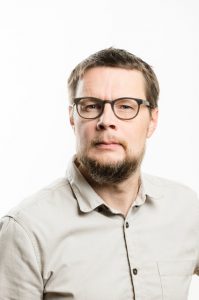Doing research and getting paid for it is fantastic, but how to do that sustainably? Kalle Korhonen tells you how to maintain the interest of research funders.
Doing research and getting paid for it is fantastic, but how to do that sustainably and maintain the interest of research funders? Even funders themselves cannot give a definite answer, but some trends can be pointed out. Admittedly, there are still universities and academic systems where nepotism and feudal-like arrangements rule, and the points made here do not concern them.
Tackling wicked problems
Not everyone might realise that our era of wicked problems has consequences for research funding, too. There is some sort of a global consciousness that we are living in the midst of problems that do not respect national borders, such as global warming, overpopulation, biodiversity loss, or violence caused by nationalism and fanaticism. Some of the issues are ages old, some are more recent.

Kalle Korhonen, Director of Research Funding at Kone Foundation
Now, there are many private research funders who wish to see wicked problems solved with their money. There is awareness among many private funders that in order to address wicked problems, systems changes are necessary, and root causes must be addressed (Ersoylu, 2017), which can bring new dynamism to some disciplines. However, in practice it is often easier to focus on piecemeal solutions, and favour short-term impact instead of long-term funding.
What does this mean for “frontier research”, previously known as “basic” or “fundamental research” (see the excellent terminological disentanglements by Kaldewey & Schauz, 2018)? The focus on root causes and systems changes is of course a good thing, because it requires exactly what frontier research is: creative and innovative work based on established research traditions.
There is another, a bit different consequence of the focus on wicked problems: it is easier to start a new discipline than some decades ago. Because of the necessity to tackle wicked problems using cross-disciplinary, mission-like approaches (Mazzucato, 2018), new (cross-)disciplines, such as sustainability science, food security research, or automated sentiment analysis have emerged. In some places, new research centres have been established for them. Such centres can be short-lived, but for doing research sustainably, they are better than funding for an individual project.
(Not) enough time to work
However, a frontier academic certainly needs time – working hours – to do research. According to recent studies by Marek Kwiek and his many colleagues (Kwiek, 2018), European countries can be divided in two based on how much young academics spend time on doing research or teaching. In countries like Ireland, Poland and Portugal, young academics teach notably more than their colleagues in countries like Finland, Switzerland and UK, where they have more time for research at their disposal. Teaching is undeniably important – it forms part of the essence of a university – but enough is enough, as high-quality teaching requires time and dedication. If your research time is very limited, it is difficult to create a respectable basis for your own research. The fact that some academics are constantly teaching or preparing lectures also makes it very hard for them to publish, which leads to a lower status in a system which values publications above all else.
Another, maybe more reassuring point made by Kwiek is that academic careers are nowadays more predictable than they used to be, because of constant evaluation. There are of course differences between disciplines and countries, and public research funding might not be as stable as it used to be for some decades in the 20th century. Still, at least in places where evaluation is fairly unbiased and based on explicit criteria, young academics can make an educated guess on why they are or are not making progress in their careers.
Three things researchers should keep in mind
Although giving simple instructions on how to secure sustainable research funding is difficult, it is useful to remember the following:
First of all, funders are different, even public funders. Research evaluation is not similar to assessing the wealth of individuals: especially in the humanities and social sciences, the evaluation of individual funding applications is necessarily qualitative, and quantitative assessment and measurements play a smaller role. Even a very high-quality funder like the European Research Council is not the role model for everyone, although no one can deny its significance for frontier research. Some funders claim to take risks with every funding decision, others have special programmes for risky research funding (VWStiftung, 2019).
Secondly, ask the funders what they emphasize in the evaluation of applications. If you do not find this information on their website, contact them and ask. It is never forbidden to ask. Since decent evaluation is based on peer review, which is often anonymous, the people you can contact at a funder cannot answer if your research will be funded or not. This is not because the information would be classified, but because they do not know. However, they can give you advice.
The third point to remember is that networking across disciplines is never bad, and it can be especially fruitful in the current research funding situation. You are strongly encouraged to try to work with academics from a completely different discipline, even if such a collaboration would not seem useful to start with. Note, however, that a proper cross-disciplinary takes time, and you should soon locate a research funder who is willing to give you time. Then you can start explaining your methods to colleagues from the other end of the academic spectrum and begin establishing a research centre for posthumanist ethics or another important new field.

